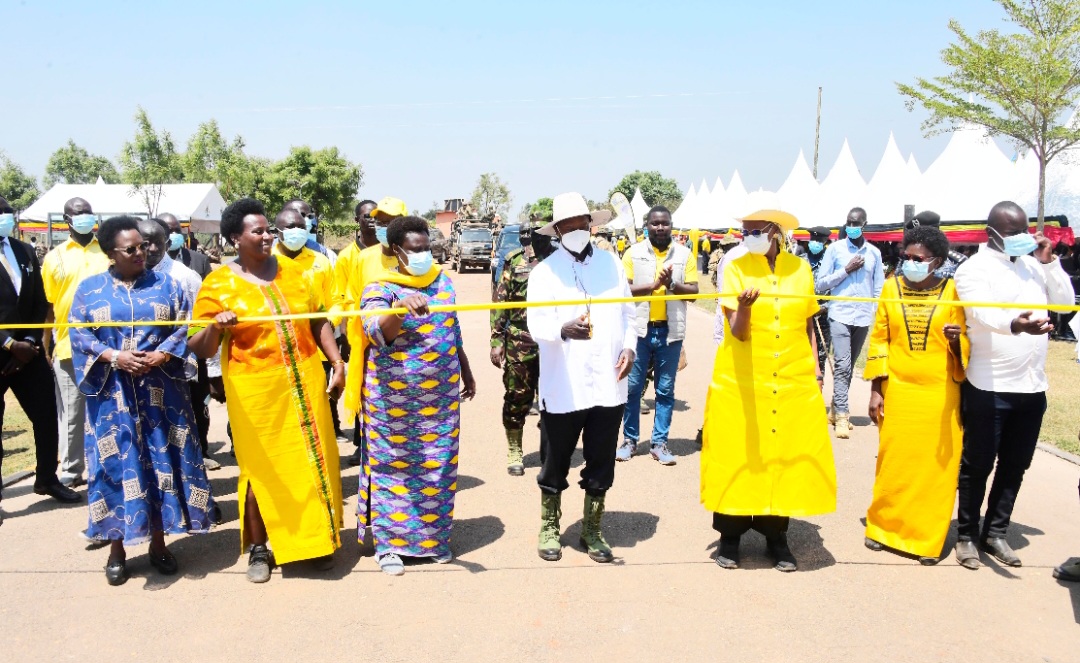Secretary Antony J. Blinken Video Remarks to the AGOA Forum
Antony J. Blinken, Secretary of State Johannesburg, South Africa SECRETARY BLINKEN: Hello, everyone. I want to start by thanking President Ramaphosa for bringing together so many government, private sector, and civil society leaders at this important forum. Last year, I traveled to South Africa to lay out the United States strategy for Sub-Saharan Africa. At its core, it’s about partnership – what the United States can do with African nations, not for African nations. The African Growth and Opportunity Act is essential to realizing this vision. For more than two decades, and for hundreds of thousands of people across Sub-Saharan Africa, AGOA has meant new jobs, new skills, new connections, new investment; it’s meant less corruption and greater human and labor rights. And all that has translated to new and powerful partnerships to advance solutions to shared challenges from the climate crisis to food insecurity to supply chain disruptions and vulnerabilities. Precisely because more inclusive, sustainable growth is good for Africa and good for America – good for the world – President Biden fully supports the reauthorization of AGOA. But we don’t just want to extend AGOA; we want to work with the United States Congress to make it even better, and that’s what this week’s dialogue is all about. In addition to the work before us in this forum, we’re determined to continue to deliver on our commitments in December’s African Leaders Summit, which are essential to creating economies and societies where trade and investment can flourish. Through the Partnership for Global Infrastructure and Investment, we’re helping to finance projects like the Lobito Corridor between the DRC, Zambia, and Angola, which will enhance connectivity and make it easier to do business in and with Africa. We’re mobilizing $8 billion in private and public investments to bolster climate resilience and advance women’s economic empowerment. We remain the biggest single country investor by far in food security and public health in the region, and we’re working on new efforts, like our VACS Initiative, to strengthen African seeds and soils. We continue to support elevating African voices in global diplomacy. We welcome the African Union joining the G20. We appreciate the IMF working to expand Sub-Saharan representation on its executive board. We remain committed to reforming the UN Security Council to include permanent representation for Africa. And this week, we inaugurated the President’s Advisory Council on African Diaspora Engagement to further strengthen the deep bonds between our citizens. This flourishing partnership between the United States and Africa gives me tremendous hope. And through gatherings like this, we can continue to shape a future where workers and businesses are equipped and empowered, where governments are transparent and accountable, where all our people can thrive, and where our nations can come together for the good of our people and the world. Thank you, and I hope you have a productive ministerial.

Antony J. Blinken, Secretary of State
Johannesburg, South Africa
SECRETARY BLINKEN: Hello, everyone. I want to start by thanking President Ramaphosa for bringing together so many government, private sector, and civil society leaders at this important forum. Last year, I traveled to South Africa to lay out the United States strategy for Sub-Saharan Africa. At its core, it’s about partnership – what the United States can do with African nations, not for African nations.
The African Growth and Opportunity Act is essential to realizing this vision. For more than two decades, and for hundreds of thousands of people across Sub-Saharan Africa, AGOA has meant new jobs, new skills, new connections, new investment; it’s meant less corruption and greater human and labor rights. And all that has translated to new and powerful partnerships to advance solutions to shared challenges from the climate crisis to food insecurity to supply chain disruptions and vulnerabilities.
Precisely because more inclusive, sustainable growth is good for Africa and good for America – good for the world – President Biden fully supports the reauthorization of AGOA. But we don’t just want to extend AGOA; we want to work with the United States Congress to make it even better, and that’s what this week’s dialogue is all about.
In addition to the work before us in this forum, we’re determined to continue to deliver on our commitments in December’s African Leaders Summit, which are essential to creating economies and societies where trade and investment can flourish.
Through the Partnership for Global Infrastructure and Investment, we’re helping to finance projects like the Lobito Corridor between the DRC, Zambia, and Angola, which will enhance connectivity and make it easier to do business in and with Africa. We’re mobilizing $8 billion in private and public investments to bolster climate resilience and advance women’s economic empowerment. We remain the biggest single country investor by far in food security and public health in the region, and we’re working on new efforts, like our VACS Initiative, to strengthen African seeds and soils.
We continue to support elevating African voices in global diplomacy. We welcome the African Union joining the G20. We appreciate the IMF working to expand Sub-Saharan representation on its executive board. We remain committed to reforming the UN Security Council to include permanent representation for Africa. And this week, we inaugurated the President’s Advisory Council on African Diaspora Engagement to further strengthen the deep bonds between our citizens.
This flourishing partnership between the United States and Africa gives me tremendous hope. And through gatherings like this, we can continue to shape a future where workers and businesses are equipped and empowered, where governments are transparent and accountable, where all our people can thrive, and where our nations can come together for the good of our people and the world.
Thank you, and I hope you have a productive ministerial.



